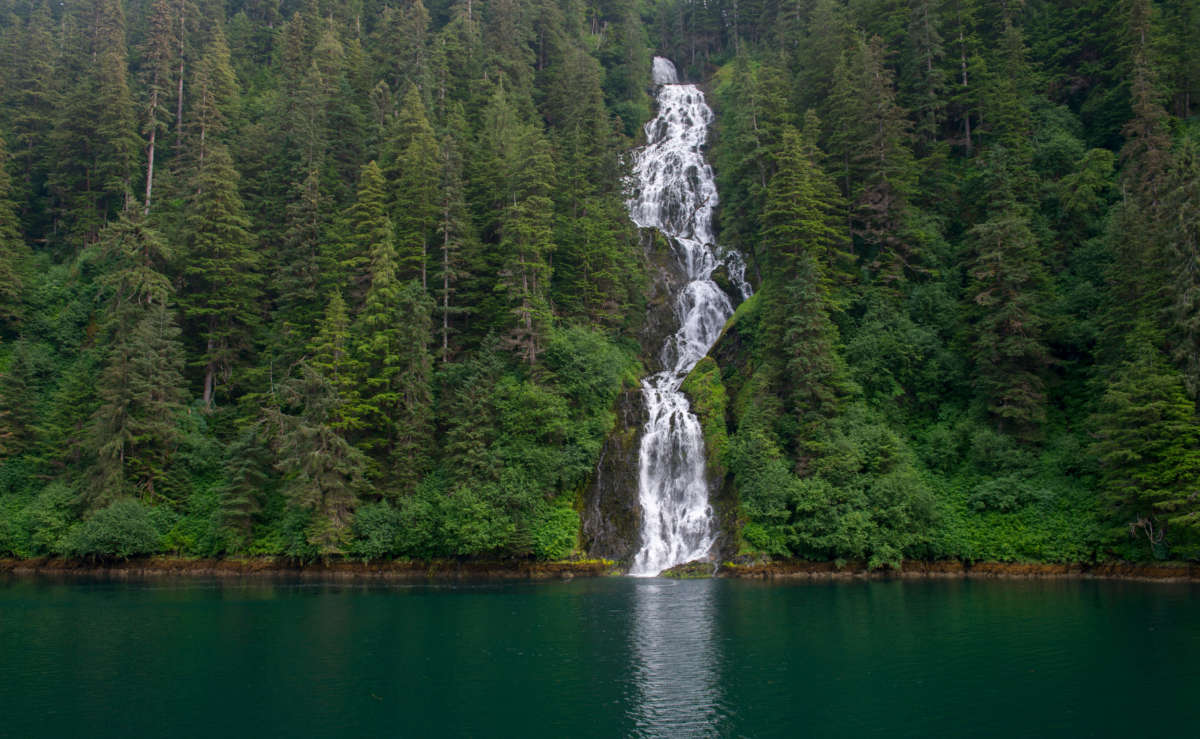Did you know that Truthout is a nonprofit and independently funded by readers like you? If you value what we do, please support our work with a donation.
The United States Forest Service announced on Thursday plans to undo a Trump administration policy that would have opened up the nation’s largest forest, the Tongass National Forest in Alaska, to logging and road construction.
Until 2020, the forest, which is also the world’s largest remaining temperate rainforest, was protected by the 2001 Roadless Rule, a provision that banned such projects in certain places in the U.S. Last year, however, former President Donald Trump announced that his administration would be exempting the Tongass National Forest from the Roadless Rule.
Yesterday, in announcing a reversal of Trump’s plan, the Forest Service explained it would either “repeal or replace” the exemption that the Trump administration placed on Tongass.
“The Trump administration’s decision on the Alaska roadless rule was controversial and did not align with the overwhelming majority of public opinion across the country and among Alaskans,” a spokesperson from the U.S. Department of Agriculture (USDA), which oversees the U.S. Forest Service, said about the changes in policy.
Indeed, 2019 polling of Alaska residents found that 57 percent supported keeping the 2001 Roadless Rule intact for the Tongass National Forest.
Indigenous tribal groups in the area also largely opposed the Trump administration’s actions. In 2019, anticipating Trump’s order rescinding the Roadless Rule, the Central Council of the Tlingit and Haida Indian Tribes of Alaska released a statement urging the administration not to open up the forest to logging and road development.
“The Indigenous tribal governments of southeast Alaska know our traditional territory; we have lived, depended on, and stewarded these lands and waters since time immemorial,” that statement read. “We know that the full exemption for development activities would forever harm our homelands.”
Environmental groups were celebratory of the decision by the Biden administration this week.
“This is great news for the hundreds of species of wildlife that live in the roadless areas, the ancient trees and the people who live and visit the Tongass to hunt, fish and enjoy nature,” said Environment America Public Lands Campaign Director Ellen Montgomery. “There’s no time to waste: The 2001 Roadless Rule protections must be fully restored in the Tongass as quickly as possible.”
“The Biden administration should be celebrated for taking a critical step in our international climate fight,” Earthjustice wrote in a tweet on its official Twitter account. “The towering giant trees in the Tongass are ancient and sacred, and they are also one of the best solutions we have to climate change.”
The forest, which is over 9 million acres in size, is considered “the lungs of North America” in terms of how it helps to reduce the effects of the climate crisis, said Dominick DellaSala, chief scientist with the Earth Island Institute’s Wild Heritage project, in 2020. “It’s America’s last climate sanctuary,” DellaSala emphasized.
In a press release announcing the action, the USDA explained that conserving Tongass was important for a number of reasons, including the fact that it is home to more than 400 different species, and its tree growth is “critical for carbon sequestration,” which helps address the climate crisis.
“Today’s announcement is in line with the Biden-Harris Administration’s approach to climate-smart forest management and conservation nationally, recognizing the importance of advancing the pace and scale of restoration and reforestation, addressing the challenge of wildfire, and retaining climate-resilient forests that provide ecologic, social and economic benefits and support rural community well-being,” USDA’s press release said.
Press freedom is under attack
As Trump cracks down on political speech, independent media is increasingly necessary.
Truthout produces reporting you won’t see in the mainstream: journalism from the frontlines of global conflict, interviews with grassroots movement leaders, high-quality legal analysis and more.
Our work is possible thanks to reader support. Help Truthout catalyze change and social justice — make a tax-deductible monthly or one-time donation today.
